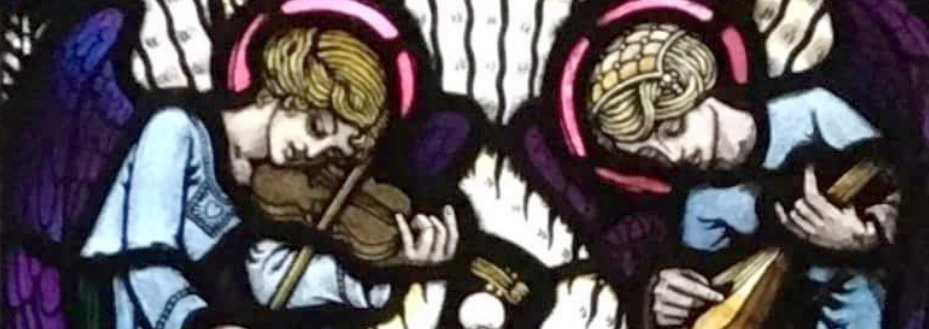The Hampstead Collective

“Comfort”: the first word in Handel’s Messiah, sung by Aidan Coburn with beautiful expression, phrasing and tone, seemed peculiarly appropriate to re-open the Hampstead Collective’s concert series after some six months of live music drought. The Hampstead Collective grew up around the core musicians of the Hampstead Parish Church choir as they came together to bring music to the church remotely during lockdown. As restrictions eased over last summer they planned an autumn-long festival of solo recitals, ensemble pieces, sacred meditations and larger scale works with which we could “start the week” at 7 pm on Mondays, collaborating with the Hampstead Players for spoken contributions. And then in November a second lockdown intervened, the last five concerts had to be postponed, and could only be resumed at the end of May. The full-length Messiah had been intended as the gateway to the Christmas season. But it seemed equally appropriate to hear it as the church turned towards “ordinary time” having, since Advent, celebrated all the stages in the gospel story. The performance brought together eight singers and a small and extraordinarily high standard orchestra, directed from the harpsichord by Geoffrey Webber. The singers shared the solo parts and all sang the choruses, and the result was an illuminating experience, bringing out, at least for this listener, many of the intricate details of Handel’s rich score which massed choirs and large orchestras can blur.
The following week returned to the one-hour format, and a fascinating programme put together by soprano Elspeth Piggott from music written by Italian women in the seventeenth century. Much of it was written by nuns, whose convent environments opened up opportunities that were only rarely available to other women. However, Elspeth’s sensitive and engaging performance could not quite, for this listener anyway, avoid the impression that the nuns’ music was just a little constrained, compared with the pieces she gave us from two of the very rare women who were able to make their living as professional musicians and composers, Francesca Caccini and Barbara Strozzi. The following week, Christine Buras picked a very different soprano repertoire, linking songs by Messiaen, Barber and Howells. She grouped them under the heading “Joy has returned” and the closing song, a setting by Herbert Howells of Walter de la Mare’s poem King David telling how the king’s sorrowfulness was dissipated by a beautiful sound, sung with captivating feeling, seemed to epitomise this sentiment.
The last of the sacred meditations the Collective had programmed again involved eight performers, directed this time by Malachy Frame, and two readers, with a wonderful mix of polyphonic music and poetry read by David Gardner and, in Spanish, by Lorena Paz Nieto. It brought home yet again just how fortunate the church is to be associated with outstanding musicians. Jess Dandy sang in this concert, having also, the evening before, linked two great women mystics by providing an unforgettable introit by Hildegard of Bingen for the Evelyn Underhill memorial evensong. Now look out for Jess as one of only four singers performing in the First Night of the Proms on 30 July. Another distinguished musician, perhaps the best baroque oboeist of his generation, also has HPC connections, and we were lucky to have Leo Duarte playing a prominent part in the little orchestra for the final concert. The whole series should have been brought to a conclusion by a performance of Handel’s Theodora. That would have involved 40 performers, and the restrictions were not relaxed in time to make it possible. But we were given a foretaste in the 90-minute replacement programme that was hastily – and most successfully – arranged, with a performance by Christine Buras and Catherine Backhouse of one of the duets (Streams of pleasure ever flowing). Now we know what we have to look forward to, as the Collective are planning another season and intending to start with Theodora. This series ended instead with Handel’ s witty, innovative and energetic piece Dixit Dominus, written when he was only 22, a setting of Psalm 110. Aidan Coburn took it at appropriately energetic tempi, which the seven singers obviously revelled in, and provided an uplifting and heartening finale to a series which has been, in these difficult times, a blessing, a huge delight, and yes, a comfort.